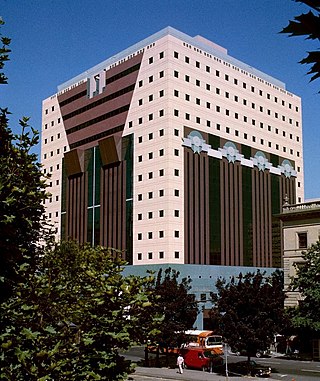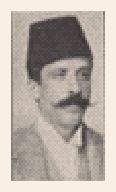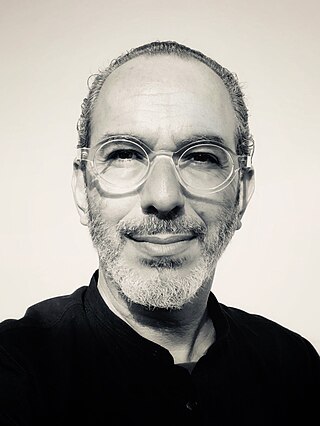
The Hiroshima Peace Memorial, originally the Hiroshima Prefectural Industrial Promotion Hall, and now commonly called the Genbaku Dome, Atomic Bomb Dome or A-Bomb Dome, is part of the Hiroshima Peace Memorial Park in Hiroshima, Japan and was designated a UNESCO World Heritage Site in 1996.

The Portland Building, alternatively referenced as the Portland Municipal Services Building, is a 15-story municipal office building located at 1120 SW 5th Avenue in downtown Portland, Oregon. Built at a cost of US$29 million, it opened in 1982 and was considered architecturally groundbreaking at the time.

The American University of Beirut is a private, non-sectarian, and independent university chartered in New York with its campus in Beirut, Lebanon. AUB is governed by a private, autonomous board of trustees and offers programs leading to bachelor's, master's, MD, and PhD degrees.

Michel Naim Aoun is a Lebanese politician and former general who served as the 13th president of Lebanon from 31 October 2016 to 30 October 2022.

The Beirut Central District is the historical and geographical core of Beirut, the capital of Lebanon. Also called downtown Beirut, it has been described as the “vibrant financial, commercial, and administrative hub of the country.” It is thousands of years old, with a traditional focus of business, finance, culture, and leisure.
Joseph Philippe Karam (1923–1976) was a Lebanese architect. He was a leading figure of modern architecture in Lebanon during the country's golden era, 1945 to 1975. Karam founded his practice the Atelier d'Architecture Joseph Philippe Karam in the late 1940s.

Jbaa, is a town in Lebanon located about 22 km from Sidon and 64 km from Beirut. It is part of the Nabatieh Governorate. Jbaa is situated on the great Safi Mountain, and rises over 770 metres (2,530 ft) from the sea level and then begins to rise to 900 metres (3,000 ft) in the district of "Ein-Elsataoun". The village covers over 3,000 acres (12 km2). Surrounding the village is gorgeous greenery including diverse trees, especially walnut trees that spread around most of the town houses.

Youssef Aftimus was a Lebanese civil engineer and architect who specialized in Moorish Revival architecture. Aftimus was the leading Lebanese architect and urban planner during the first half of the twentieth century, he is the author of many of Beirut's well known landmarks such as the Beirut Municipality Building, the Grand Serail's Hamidiyyeh clock tower, the Hamidiyyeh Fountain and the Barakat Building. Aftimus was also an urban planner, and politician and philanthropist.

The InterContinental Phoenicia Beirut is a historic 5-star luxury hotel situated in the Minet El Hosn neighborhood of Beirut, Lebanon. It is located on Rue Fakhreddine near the Corniche Beirut promenade and walking-distance from Beirut Central District, and a few kilometers from Beirut Rafic Hariri International Airport.

Nabil Gholam is a French-Lebanese architect, urban planner and the founder of Nabil Gholam Architects (ngª). In 2010, Monocle magazine has called Gholam a "leading" architect in Lebanon. In Modern Architecture: A Critical History, critic Kenneth Frampton cited Gholam's colony of holiday chalets at Faqra as one of "two works [which] promise a renewal of Lebanese architecture".

Glasgow, the largest city in Scotland, has several distinct styles of residential buildings. Building styles reflect historical trends, such as rapid population growth in the 18th and 19th centuries, deindustrialisation and growing poverty in the late 20th century, and civic rebound in the 21st century.

The Beirut River is a river in Lebanon separating the city of Beirut from its eastern suburbs, primarily Bourj Hammoud and Sin el Fil. The river flows mostly east to west from snow drains and springs on the western slopes of Mount Kneisseh and the southern end of Mount Sannine near the towns of Hammana and Falougha, before curving north and emptying at Beirut's northern Mediterranean coast, east of the Port of Beirut. According to popular legend, St. George slew the dragon in a spot near the mouth of the river.

Beirut Souks is a major commercial district in Beirut Central District. With over 200 shops, 25 restaurants and cafes, an entertainment center, a 14 cinema complex, periodic street markets, and an upcoming department store, it is Beirut's largest and most diverse shopping and leisure area. Beirut Souks also features piazzas, and public space. Designed in five separate commissions by international and Lebanese architects, Beirut Souks offer 128,000 sq. m of built-up area interspersed with landscaped pedestrian zones.

The Museum and Urban Cultural Center of Beirut or colloquially; Bayt Beirut/Barakat is a venue serving as a war memorial museum and artwork showcasing center dedicated to portraying the history of Beirut, with a particular focus on the Lebanese Civil War from artistic point of views. Housed in the restored Barakat building, also known as the "Yellow House," this historic landmark was designed by Youssef Aftimus.

Beirut City Hall, also known as the Municipality of Beirut, is a landmark building built in downtown Beirut, Lebanon in 1924, and has become an architectural landmark in the downtown area of Beirut Central District. It features a yellow limestone facade and combines various architectural styles. The building is located on the intersection of Foch Street and Rue Weygand in the city center. The building is in the Venetian and Arabesque architectural styles, a mix that expresses the regional identity of the area.

The Hotel St. Georges is a historic resort hotel in Beirut, Lebanon, opened in 1934. It was constructed by a French investment group, the Société Des Grands Hotels Du Levant (SGHL), during the period of the French mandate. Parisian architect Auguste Perret came to Beirut to design the hotel with local architect Antun Tabet.

The Holiday Inn Beirut is a ruined hotel in Beirut, Lebanon on Omar Daouk Street in the central Minet el Hosn neighborhood. The Holiday Inn was in operation for less than a year before the Lebanese Civil War broke out in 1975.

Kassem Mohammed El Zein is a Lebanese footballer who plays as a defender for Lebanese Premier League club Nejmeh and the Lebanon national team.

Beirut Terraces is a residential skyscraper in the Central district of downtown Beirut, Lebanon. It is located at 1399 Fouad Najjar Street in the Minet el-Hosn neighborhood, south of the Platinum Tower. It has 26 floors with an overall height of 119.5 m (392 ft). The building construction started in 2011 and finished in 2017. It was developed by Benchmark and designed by Herzog & de Meuron Architekten.





















